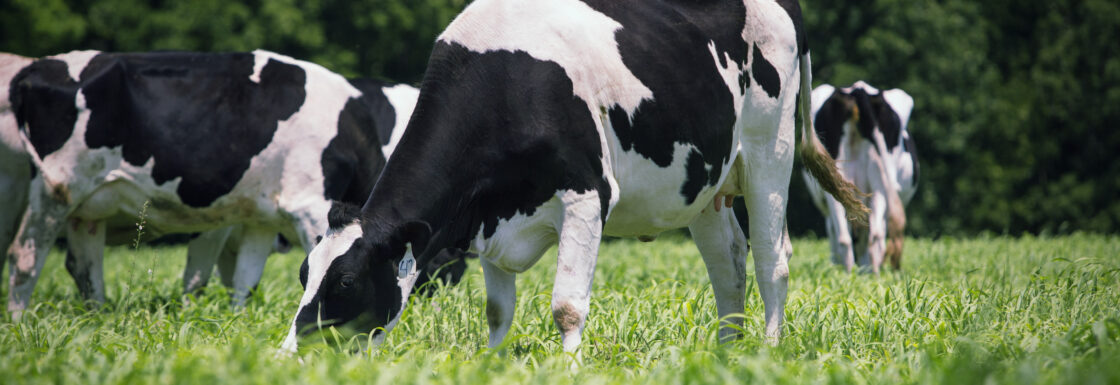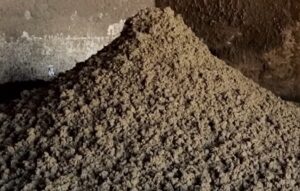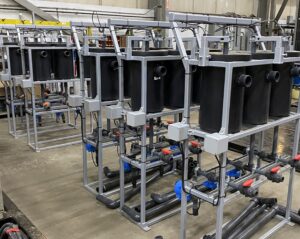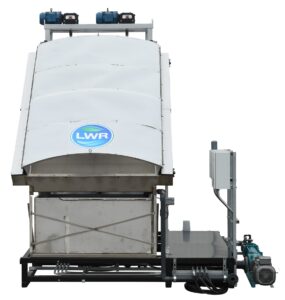NetZero Dairy: LOIS by LWR Creates Methane Avoidance Credits

Projects Sponsor
Dairy farming is a significant contributor to greenhouse gas emissions and that means effectively addressing the environmental impact of methane emissions is key to winning the fight against climate change. Thankfully, with their innovative LOIS, the team at Livestock Water Recycling (LWR) has found a way to mitigate methane emissions from livestock protein production — while making farming sustainable practices economically viable.
The overarching objective of the project was to devise and implement a viable solution to effectively counteract methane emissions through the use of cutting-edge manure processing technology. At the same time, the LWR team recognized that simultaneously creating an additional revenue stream for farms who implement regenerative manure processing is key to getting and keeping their solution adopted.
At its core, the LOIS project is about bridging the gap between sustainability and profitability for farmers and to do that LWR pioneered the development of a data/sensor package and machine learning platform to complement their First Wave system of manure treatment technology. This platform enables the collection, calculation, and submission of data files to verify methane avoidance, ultimately establishing a new standard for on-farm methane avoidance, resulting in access to methane avoidance credits.
This helps make sustainable dairy farming sustainable — which directly contributes to carbon reduction.

To get there the LWR team had to really understand the lifecycle of methane produced from manure and more specifically from manure stored on-farm in lagoons. LWR researched all forms of GHG emissions from livestock manure, finding methane to be 25 times more potent than CO2.
Next the team investigated how much carbon was in each phase of the liquid stream, and systemically tested the carbon removed throughout the First Wave treatment process. Lastly a model was created to determine the methane avoidance potential of manure processing in order to create an airtight economic case.
This research underscored the urgency of addressing emissions while conceptualizing novel ways to make this sustainability effort profitable for farmers.
Conventional manure management practices were found to exacerbate methane emissions. It was clear innovative solutions were needed and LWR stepped right up. A fusion of AI, data analysis, and ML emerged as a necessary approach to quantify the environmental impact of manure processing. This led to the development of the LOIS data/sensor package and ML platform that make it possible to validate the First Wave system as a true methane avoidance solution.

Once they’d confirmed the feasibility of their approach, LWR’s internal tech team collaborated to create specialized sensors capable of accurately detecting, measuring, and reporting carbon levels in manure samples. They overcame challenges posed by flowing water and false positives caused by entrained bubbles, ultimately developing a real-time sampling platform and specialized sensors.LOIS was designed to collect real-time data from custom sensors and directly share it with carbon markets in a transparent manner through a CSV file format. A baseline for methane emissions on the dairy farm without manure processing equipment was established.
Collected data was then integrated into LWR’s AI-driven ML algorithm, allowing continuous analysis of data inputs and outputs. This integration optimized the First Wave system’s performance, refining its operation for more efficient methane emission reduction and then they sent it to the farm.
LWR closely collaborated with Skyridge Farms, actively involving them in the validation and verification process to meet Verified Carbon Standard (VCS) and Clean Development Mechanism (CDM) standards.
The validation and verification process encompassed various steps from project kick-off through to inspections. The audit team ensured compliance with VCS requirements and accurate calculation of emission avoidance through LOIS. Verification confirmed the project’s emission reduction potential and that potential has been met.

Over a 951-day reporting period, Skyridge Farms achieved a remarkable reduction of 20,692 tonnes of CO2e emissions while processing 300 million gallons of manure. This was attributed to the implementation of the First Wave system and its data-driven methane avoidance approach. The VCS verification further validated this unique methodology, setting a new industry standard for methane avoidance and credits.
The integration led to verified methane avoidance, generating methane avoidance credits and new revenue for the farm ranging from $200,000 to $400,000, halving the payback time for the LWR First Wave system from 48 to 24 months
By measuring carbon levels in manure samples and using AI to optimize the system, unprecedented accuracy and effectiveness were achieved. The seamless integration into the carbon market strengthened the project’s feasibility, showcasing its potential to revolutionize methane emission reduction.
Most impactfully, it has set a new standard for on-farm methane avoidance that means we can all breathe a little easier.













